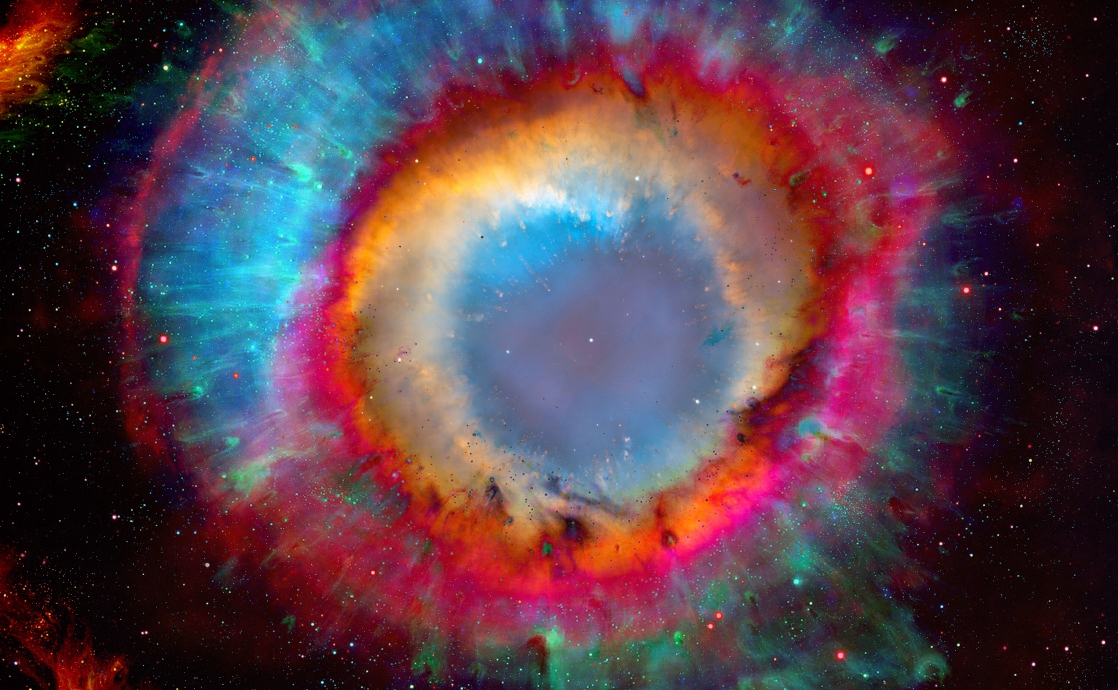The views expressed in our content reflect individual perspectives and do not represent the authoritative views of the Baha'i Faith.
Have you ever wondered why you exist? Of course you have – that question occurs, at some point, to all of us. Science asks it, too, usually in this macro form: why is there something rather than nothing?
In other words, why does existence exist? Why did this stunningly complex universe and all its gorgeous life come into being?
Many cultural and religious traditions have a creation story that explains how everything began; and some religious people will simply answer the question with a one-word answer: “God.” But that response doesn’t satisfy everyone, so philosophy and science have weighed in repeatedly with various attempts to find an answer.
Thought of as “the fundamental question of metaphysics” by renowned philosophers like Leibniz and Heidegger, the question asks those without Aristotle’s belief in a “Prime Mover” to do something many think impossible: deduce the existence of all things without using any existential explanation. Science, of course, has tried – the question has prompted thousands of experiments and enormous speculation for centuries.
We’ve seemingly made some progress in seeking an answer. In our current state of scientific understanding, quantum mechanics tells us that no such thing as complete emptiness exists. Even the most perfect known vacuum, we now understand, is filled with clouds of sub-atomic particles and antiparticles – which flare into existence and then almost immediately disappear. Because of their short lifespan we can’t observe those so-called “virtual particles” directly, but we know they exist because of their effects.
We’ve now proven that even interstellar space – once thought of as a low-density, low pressure, perfectly empty vacuum – contains a tenuous plasma created by solar winds and populated by charged particles including large numbers of photons; free elements like hydrogen, helium, and oxygen; electromagnetic fields; and cosmic background radiation.
In other words, no true vacuum exists, as far as we know. The universe, even the parts that may seem completely empty, teems with matter and energy – which leads to a profound conclusion: there is no such thing as nothing. That fact has led many scientists to another conclusion, that science itself cannot answer every query:
Science has told us so much about our world! We now understand, more or less, what reality is made of and what forces push and pull the stuff of existence to and fro. Scientists have also constructed a plausible, empirically founded narrative of the history of the cosmos and of life on Earth. But when scientists insist that they have solved, or will soon solve, all mysteries, including the biggest mystery of all, they do a disservice to science; they become the mirror images of the religious fundamentalists they despise. – John Horgan, Director of the Center for Science Writings at the Stevens Institute of Technology, in Science Will Never Explain Why There’s Something Rather Than Nothing, Scientific American, April 23, 2012.
Which takes us back to the original question: if existence started off as absolutely nothing – a complete vacuum with no space, time, matter or energy, not even containing the initial conditions amenable to their creation, then how does something magically come into existence from nothing? Science has never answered that fundamental question, but the Baha’i teachings do:
The power of God is eternal and there have always been beings to manifest it; that is why we say that the worlds of God are infinite – there has never been a time when they did not exist. One can bring nothing forth from nothing, in the same way that which exists is never destroyed; the apparent annihilation is merely transmutation. – Abdu’l-Baha, Divine Philosophy, p. 106.
The cosmological argument, often called the law of cause and effect, means that all effects can ultimately be traced back to a “First Cause” – generally thought of as an omniscient, omnipresent Creator who has always existed, and therefore needs no causation. Plato, Aristotle, Aquinas, Hume and Russell, among many, many other philosophers and theologians, put forth versions of this profound proof. The Baha’i teachings express it in these terms:
Existence is of two kinds: one is the existence of God which is beyond the comprehension of man. He, the invisible, the lofty and the incomprehensible, is preceded by no cause but rather is the Originator of the cause of causes. He, the Ancient, hath had no beginning and is the all-independent. The second kind of existence is the human existence. It is a common existence, comprehensible to the human mind, is not ancient, is dependent and hath a cause to it. – Abdu’l-Baha, Selections from the Writings of Abdu’l-Baha, p. 61.
This answer – that the First Cause, God, has always existed – does tend to boggle the mind. Human beings live on the temporal physical plane, and accept the reality of a time-bound existence, so we all have difficulty comprehending a timeless one. Even so, the idea of a First Cause, a Prime Mover, does give us a profound answer that explains why something exists rather than nothing:
It is clear and evident that the one true God – glorified be His mention! – is sanctified above the world and all that is therein. …
All have issued forth from abodes of dust, and unto dust shall they return, while the one true God, alone and single, is established upon His Throne, a Throne which is beyond the reaches of time and space, is sanctified above all utterance or expression, intimation, description and definition, and is exalted beyond all notion of abasement and glory. – Baha’u’llah, The Summons of the Lord of Hosts, pp. 108- 111.
You May Also Like
Comments

















without reference to the One
Is to explain the day
without reference to the sun.
——
🖊️: Reference to the Sun, Baraka Blue